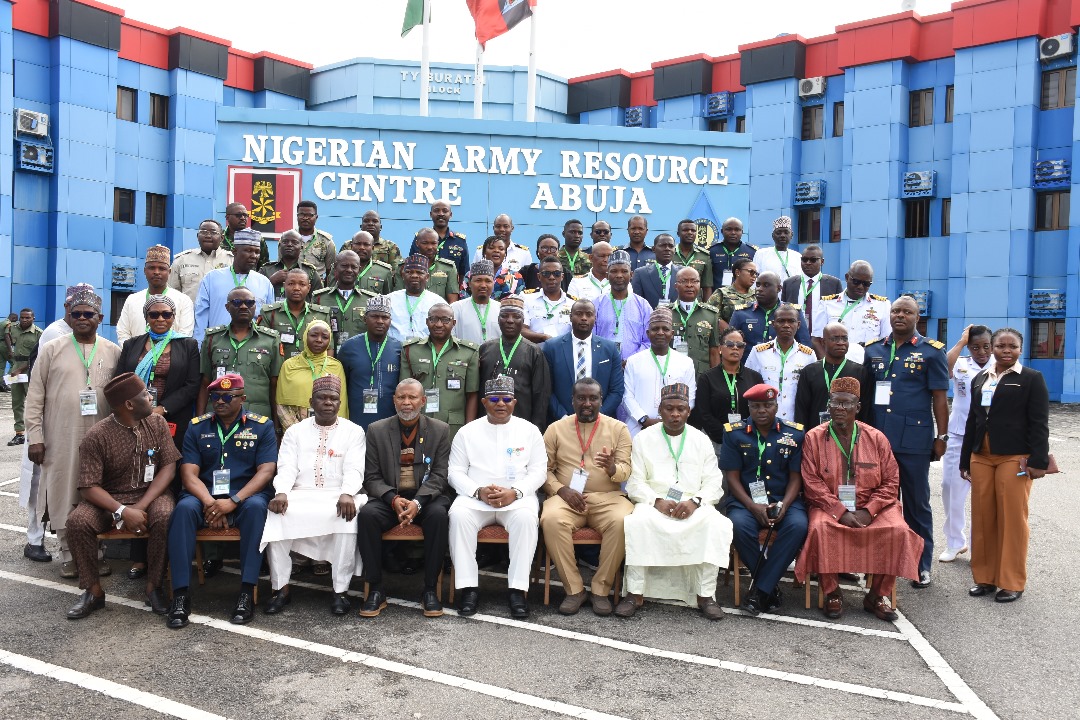The Nigerian Army Resource Centre (NARC) in collaboration with Peace Building Development Consult PBDC, successfully carried out its Leadership Course in Operations Security and Force Protection, (4) of 2025.
The 3-day training with over 90 participants from across the military, paramilitary agencies, ministries, departments, and other critical security organizations aimed at equipping participants with the tools, mindset, and skills necessary to navigate the increasing threats and vulnerabilities facing modern security operations.
The leadership course also spotlighted the importance of inter-agency intelligence sharing, sound tactical planning, and continuous review of strategies in Nigeria’s fight against insurgency, banditry, and emerging threats.
It was observed that many agencies fail to deliver critical intelligence to the armed forces, creating operational blind spots. Participants were charged to build stronger inter-agency relationships and push for policy reforms that ensure better synergy.
This article by Maureen Okpe set to provide a summary of lectures by resource persons during the training which took place at the Nigerian Army Resource Center (NARC), in Abuja.
DG NARC Calls for Realism, Innovation
Addressing the participants at the training, Major General JGK Myam (rtd), Director General of NARC, in his remark emphasized the importance of operational realism and critical thinking in securing national assets and personnel.
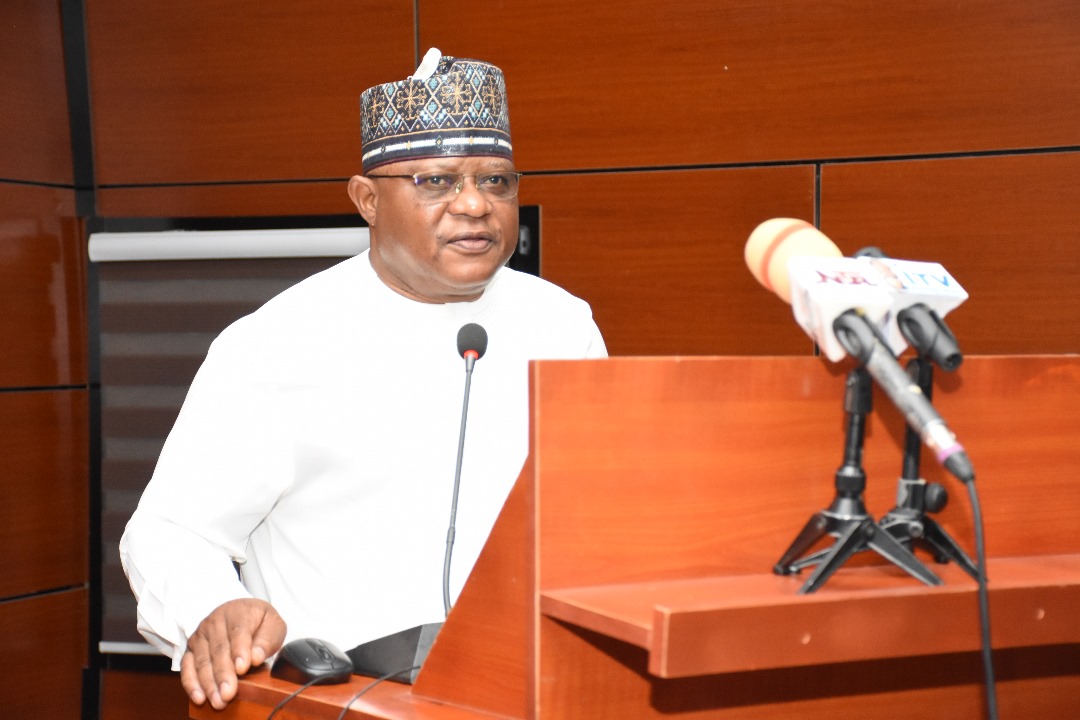
The DG cautioned participants not to over-rely on theoretical or unavailable tools such as drones or cryptographic hardware, citing cost, access, and field realities.
He urged security operatives to think innovatively and apply practical solutions under resource-constrained scenarios.
Maj. Gen. Myam said, “every organization faces vulnerabilities, military, ministries, paramilitary agencies alike. Our goal is to equip participants with actionable skills to counter these threats effectively.
“If tools like drones are not available in the field, what do you do? You must innovate. That’s the true test of leadership,” he said.
Maj. Gen. VO Ezugwu (rtd): “OPSEC and FP Are Lifelines in Warfare”
Speaking as the first resource person at the course, Major General Victor O. Ezugwu (rtd), former DG, Defence Industries Corporation of Nigeria, delivered a comprehensive lecture on “The Concept of Operational Security (OPSEC) and Force Protection (FP).”
Gen. Ezugwu described OPSEC and FP as the “lifelines of modern warfare,” emphasizing their role in defeating both external aggressors and internal insurgencies.
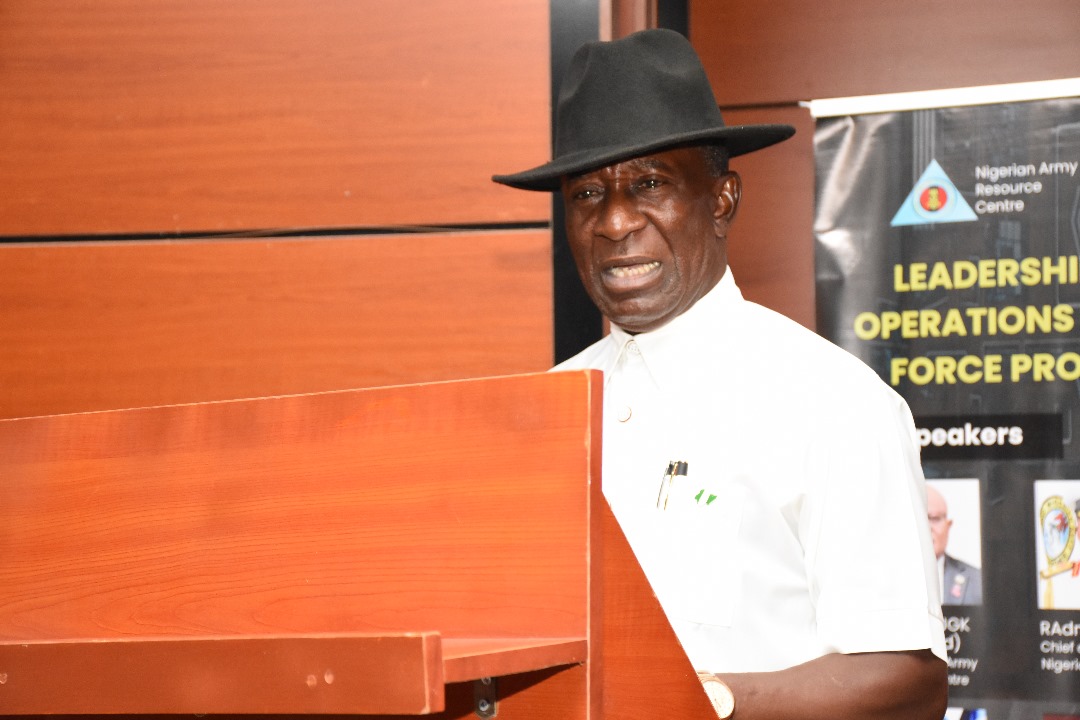
According to him, “If your enemy knows your plans, you are doomed. But if they are left in the dark, you gain the advantage of surprise.”
Key Takeaways from Gen. Ezugwu’s Lecture
1. Operational Security (OPSEC):
· Every operation must be top-secret.
· Deception and decoy tactics are essential.
· Strict sanctions must be placed on social media misuse by personnel.
· Selling classified information is treasonous and threatens national security.
2. Force Protection (FP):
· Use of drones, artillery, and protective tech is vital, but their unavailability should spur innovation.
· Welfare, morale, and psychological resilience of troops are critical for operational success.
3. Leadership Qualities for Commanders:
· Must be approachable, humble, and strategic decision-makers.
· Good leaders prioritize welfare, avoid fatigue by rotating troops, and lead by example.
· Negative traits like nonchalance, stinginess, and disrespect can cause internal breakdown.
“You must relate with your troops personally. Some commanders have died due to negligence or betrayal. A commander who wins hearts wins battles,” Ezugwu concluded.
Over 300 Lives Lost in 2023/2024 Due to Security Gaps
For his part, Rear Admiral Egbinta Atebi the Chief of Naval Training, Nigerian Navy, raised critical concerns over the increasing vulnerabilities faced by Nigerian security personnel in combat and field operations.

He made these revelations while presenting his lecture on “Operations Security and Force Protection.” According to him over 326 security personnel were killed between 2023 and 2024 during coordinated attacks on military forward operating bases in central and northwestern Nigeria.
These casualties, he noted were attributed in part to insecure communications, intelligence lapses, and operational mismanagement.
Atebi said, “the Armed Forces of Nigeria have recorded numerous operational successes, but these achievements are increasingly undermined by growing vulnerabilities that threaten both mission success and the resilience of our forces.”
Nigeria’s Multi-Zonal Crises: A Complex Security Web
The Chief of Naval Training highlighted that personnel vulnerabilities have worsened due to overlapping crises across all six geopolitical zones. From insurgency in the Northeast to banditry in the Northwest, separatist agitations in the Southeast, and oil-related militancy in the South-South,noting, the security landscape has grown more volatile and unpredictable.
He noted: “Between 2021 and 2025, hundreds of security operatives were lost in field engagements across Nigeria. Despite regional collaborations and special task forces, challenges persist due to inadequate psychological support, poor logistics, and weak technological infrastructure.”
Key Forms of Personnel Vulnerabilities Identified
Rear Admiral Atebi detailed seven major categories of vulnerabilities affecting personnel:
1. Frontline Exposure – Troops are vulnerable to ambushes, sniper fire, and IEDs, with over 150 personnel killed in ambushes in 2023/2024 alone.
2. Mental Strain – Burnout, PTSD, and depression are prevalent, yet structured psychological support remains inadequate.
3. Breakdown in Cohesion – Poor leadership, corruption, and lack of trust have led to increased desertions and low morale among troops.
4. Fragile Supply Chains – Shortages of modern weapons, food, and delayed welfare payments have weakened operational sustainability.
5. Technological Fragility – Use of outdated communication gadgets has led to compromised missions, especially with local armed groups intercepting military communications.
6. Cultural Missteps – Lack of language and cultural training has alienated local communities, complicating intelligence gathering.
7. Ethical Dilemmas – Troops face legal and moral challenges in the field, from rules of engagement to human rights concerns.
Challenges Crippling Operational Security and Force Protection (OPSEC & FP)
The Rear Admiral noted that weak intelligence gathering, lack of real-time surveillance, and poor inter-agency coordination are hampering security operations.
He also cited corruption, insider threats, and predictable operational routines as major OPSEC breaches.
Solutions and Strategic Recommendations
The presentation offered a comprehensive way forward to enhance OPSEC and FP:
· Real-time Intelligence Sharing: Create integrated fusion centers linking the Armed Forces, DSS, Police, and NSCDC for seamless intelligence flow.
· Asymmetric Warfare Training: Establish more counterinsurgency and guerrilla warfare schools, with international partnerships to adopt global best practices.
· Technological Investment: Deploy drones, encrypted communication devices, wearable health monitors, and telemedicine platforms to support troops in harsh terrains.
· Mental Health & Welfare Digitalization: Provide confidential access to trauma counseling, stress management tools, and digital welfare systems to curb corruption and improve troop morale.
· Community Engagement: Sustain cultural training and civil-military cooperation to build local trust and enhance field intelligence.
· Anti-Corruption Oversight: Enforce transparency in operational spending and ensure independent investigations of security breaches.
“We Must Secure Our Forces to Secure the Nation” – Rear Admiral Atebi
Concluding his address, Rear Admiral Atebi called on all stakeholders in the national security architecture to prioritize the safety, welfare, and resilience of frontline personnel, stating: “To secure Nigeria, we must first secure those who put their lives on the line for this country.”
His presentation, underscores the urgent need for reforms in Nigeria’s security apparatus, especially in the face of evolving threats and hostile environments.
Security Chiefs Chart Path for Nigeria’s Future Warfare Preparedness
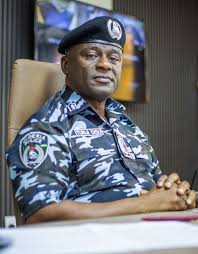
AIG Tunji Disu and Maj. Gen. AA Ayanuga Lead Security Dialogue on National Defense Strategy.
The senior security officials called for an urgent realignment of national defense strategies by integrating Operations Security (OPSEC), Force Protection (FP), and Artificial Intelligence (AI) into both conventional and irregular warfare tactics.
Speaking Assistant Inspector General of Police (AIG) Tunji Disu, and Major General AA Ayanuga presented strong cases for redefining how Nigeria’s police and paramilitary forces prepare for future threats.
“Protection and OPSEC are not just concepts; they are the foundation of mission success,” said AIG Disu.
“They must work in a feedback loop, intelligence must drive protection, and protection must support intelligence.”
OPSEC and Force Protection: Closing the Security Gaps
AIG Disu stressed that Operations Security (OPSEC) focuses on identifying, analyzing, and protecting sensitive information, while Force Protection (FP) ensures the physical safeguarding of personnel and assets.
Key vulnerabilities undermining OPSEC in Nigeria include:
· Social Media Breaches
· Loose Talk/Information Leaks
· Predictable Routines
· Insider Threats
· Poor Physical Security
He also highlighted recent operational failures, pointing to lapses in intelligence gathering, corruption, weak inter-agency cooperation, and lack of specialized training.
“Security breaches don’t just happen they are the result of systemic failures, especially when intelligence is weak or compromised from within,” Disu added.
To strengthen OPSEC and FP, recommendations include:
· Comprehensive training programs
· Strict access control
· Cybersecurity protocols
· Community watch initiatives
· Anti-corruption frameworks
AI: The Future Battlefield Weapon
In his presentation titled “Technology and Artificial Intelligence in Unconventional and Irregular War,” Maj. Gen. AA Ayanuga emphasized the global shift towards AI-enabled warfare, noting that robots, drones, and algorithms are set to replace soldiers on future battlefields.
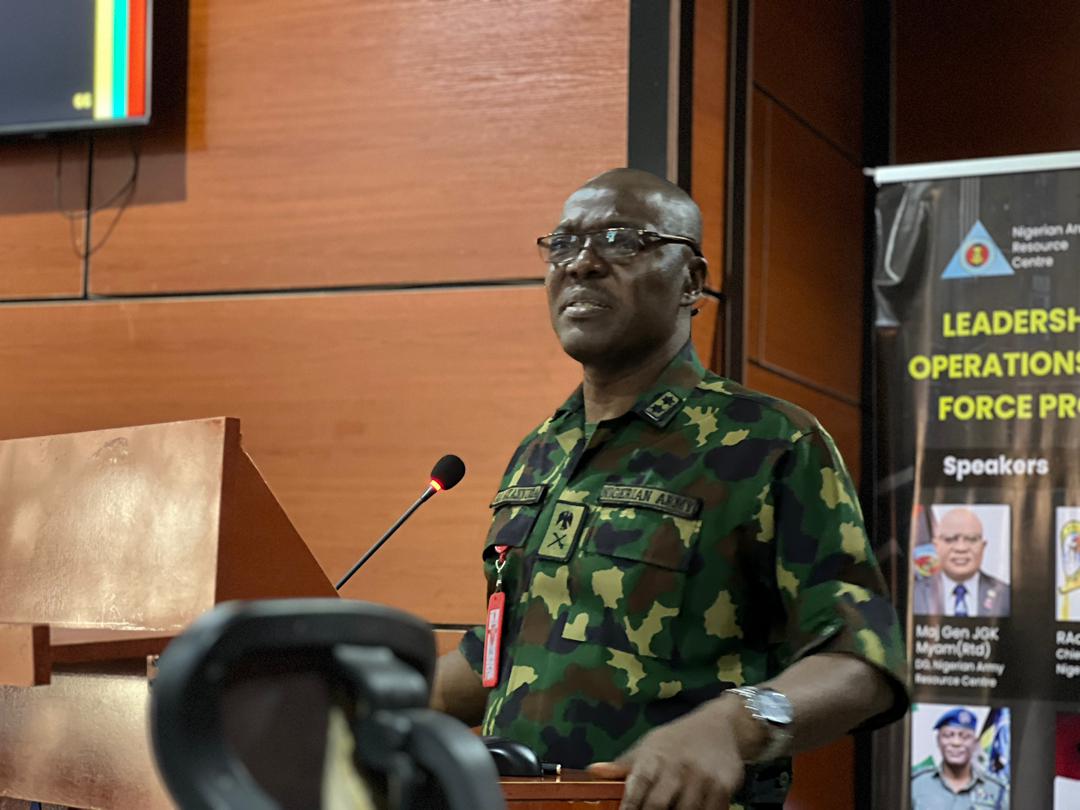
“Only nations that structure their institutions to manage new technologies will emerge as dominant powers,” Ayanuga stated. “Future warfare will not be fought by soldiers but by autonomous systems.”
Ayanuga explained that AI is now central to:
· Autonomous weapon systems
· Cyber defense and cyber warfare
· Precision targeting
· Data-driven decision-making
· Surveillance and reconnaissance operations
Global AI Arms Race: Nigeria Must Not Be Left Behind
Citing examples from the Russia-Ukraine war, China’s drone swarms, and Project Maven by the Pentagon, Ayanuga urged Nigeria to invest aggressively in AI infrastructure and data sovereignty.
He warned that data dependency on foreign cloud servers poses a national security risk.
“We are still colonized digitally. All our WhatsApp messages and emails are stored on foreign servers. That must change,” he said. “We must build our own systems, store our data locally, and create AI solutions tailored to Nigeria’s security needs.”
Ethical Concerns and AI in Combat
Ayanuga further noted while AI offers increased speed, accuracy, and autonomy in military operations, it also raises significant ethical and legal concerns.
“If a robot makes a mistake, who is responsible the machine, the programmer, or the commanding officer?” Ayanuga asked. “AI must be used responsibly to avoid moral and operational disasters.”
Challenges cited include:
· System malfunctions
· Hacking vulnerabilities
· Accountability gaps
· Weaponization by non-state actors
Build Local, Think Global
Both Disu and Ayanuga agreed that Nigeria must chart its own course in AI defense systems, driven by local talent, infrastructure, and data ecosystems.
However, Maj. Gen. Ayanuga proposed:
· Government investment in Nigerian-built AI systems
· National data sovereignty laws
· AI integration in training and simulation systems
· Development of AI chatbots for internal security decision-making
· Stronger collaboration between military, academia, and tech startups
“The knowledge is here. Our young people are ready. What we need is belief, investment, and coordination,” he concluded.
Group Presentations Reviewed with Tactical Insights
Participants presented in seven groups/syndicate. Responding to syndicate presentation Gen. Myam offered direct feedback, urging greater realism in threat scenario planning, flexibility in strategy and situational awareness.
He emphasized the psychological toll of chemical warfare, the importance of risk assessment, and the need for contingency planning, noting that unpredictability in operations is a key force protection strategy.
In addressing presentations on cryptography, he noted a common oversight among participants: failure to fully consider field-level challenges such as securing and maintaining cryptographic tools in hostile environments.
NARC, PBDC Commended
Gen. Myam commended the Peace Building Development Consult PBDC, led by Mr. Kayode Bolaji, for their support in delivering the program.
He also lauded the NARC team and resource persons for their contributions to the intellectual and strategic development of the participants.
“As you return to your agencies, apply what you’ve learned. Security is evolving, and only those who adapt will succeed,” Myam told the graduates.
Participant Reaction – Col. Ahmad Abdul Usman
Special Advisor on Security Matters, Sokoto State Government, Col. Ahmad Abdul Usman expressed his appreciation for the leadership and security training organized by the Nigerian Army Resource Center in collaboration with the PBDC.
He described the program as timely and impactful, particularly in his role as Special Advisor on Security Matters to the Sokoto State Government.
Reflecting on the value of the training, Col. Osman noted its relevance to his work, especially as someone directly involved in the establishment, recruitment, and training of the Sokoto State Community Guard.
He emphasized that the insights gained will be taken back to their teams and used to build a “train-the-trainer” model, ensuring the knowledge is cascaded down through the ranks.
“Knowledge is power,” he stated, noting the importance of continuous learning and development in the security sector.
One of the sessions he found particularly relevant was on post-protection, which directly aligns with the operational duties of the Community Guard. Since these teams often operate with conventional tools, he believes the training will enhance their collaboration with formal security agencies, especially in the critical area of intelligence gathering.
He reiterated that intelligence remains a cornerstone of effective security operations and shared his confidence that his team is now better equipped in this regard.
“We are impressed with the training,” he concluded, expressing optimism about applying the lessons learned to real-world security challenges in Sokoto State.

